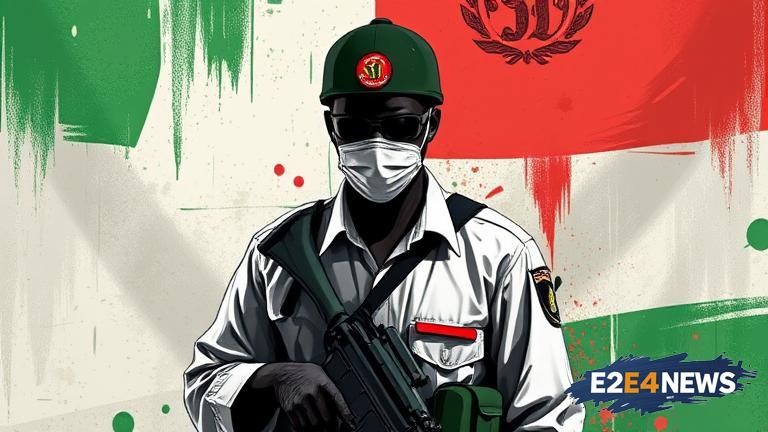The Indigenous People of Biafra (IPOB), a separatist movement in Nigeria, has made a startling allegation that the country’s security agencies have infiltrated their organization. This claim has sent shockwaves throughout the nation, with many questioning the implications of such an infiltration on national security. The IPOB, led by Nnamdi Kanu, has been at the forefront of the agitation for the independence of the Biafran region from Nigeria. The group’s activities have been met with resistance from the Nigerian government, which has labeled them a terrorist organization. The alleged infiltration by security agencies has raised concerns about the group’s ability to operate effectively and the potential for violence. The IPOB has accused the security agencies of using undercover agents to gather intelligence and disrupt their activities. This has led to a heightened sense of paranoia within the group, with many members suspecting that they are being monitored. The Nigerian government has not commented on the allegations, but it is likely that they will deny any wrongdoing. The IPOB’s claims have sparked a heated debate about the role of security agencies in Nigeria and their tactics in dealing with separatist groups. Many have questioned the legality and morality of infiltrating a group, even if it is considered a threat to national security. The infiltration allegations have also raised concerns about the potential for human rights abuses and the mistreatment of IPOB members. The Nigerian government has been accused of using heavy-handed tactics in dealing with the group, including arrests, detentions, and extrajudicial killings. The IPOB has also accused the government of using propaganda and disinformation to discredit them and turn the public against them. The alleged infiltration has also sparked fears of a potential crackdown on the group, with many predicting that the government will use the intelligence gathered to launch a massive operation against the IPOB. The group’s leader, Nnamdi Kanu, has been in detention since 2015, and his continued incarceration has been a major point of contention between the IPOB and the Nigerian government. The IPOB has called for Kanu’s release, but the government has refused, citing the need to maintain national security. The alleged infiltration has also raised questions about the effectiveness of the Nigerian security agencies and their ability to deal with the IPOB and other separatist groups. Many have criticized the government’s approach, arguing that it is heavy-handed and counterproductive. The IPOB’s allegations have also sparked a wider debate about the future of Nigeria and the potential for the country to break up. The group’s demands for independence have been met with resistance from the government, but many are beginning to question whether the country can remain united in the face of such strong separatist sentiments. The alleged infiltration has also raised concerns about the potential for violence and instability in the region. The IPOB has been accused of using violent tactics, including attacks on security personnel and government facilities. The Nigerian government has responded with force, leading to a cycle of violence and retaliation. The alleged infiltration has also sparked fears of a potential humanitarian crisis, with many predicting that the situation will escalate into a full-blown conflict. The international community has been called upon to intervene, with many urging the Nigerian government to engage in dialogue with the IPOB and find a peaceful resolution to the crisis.
